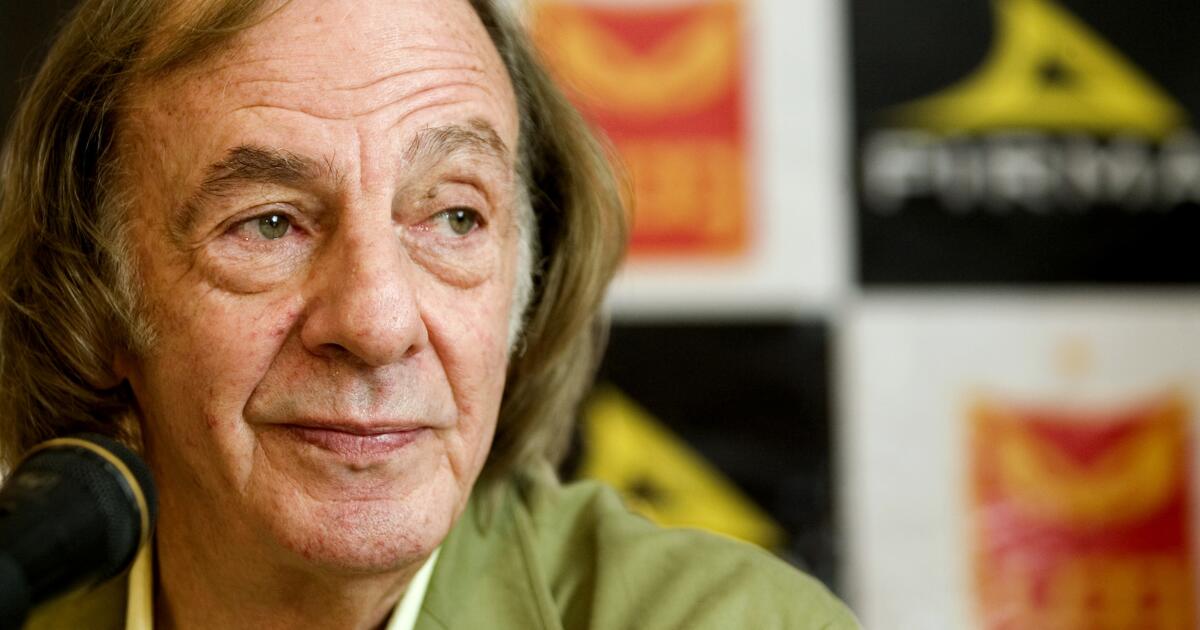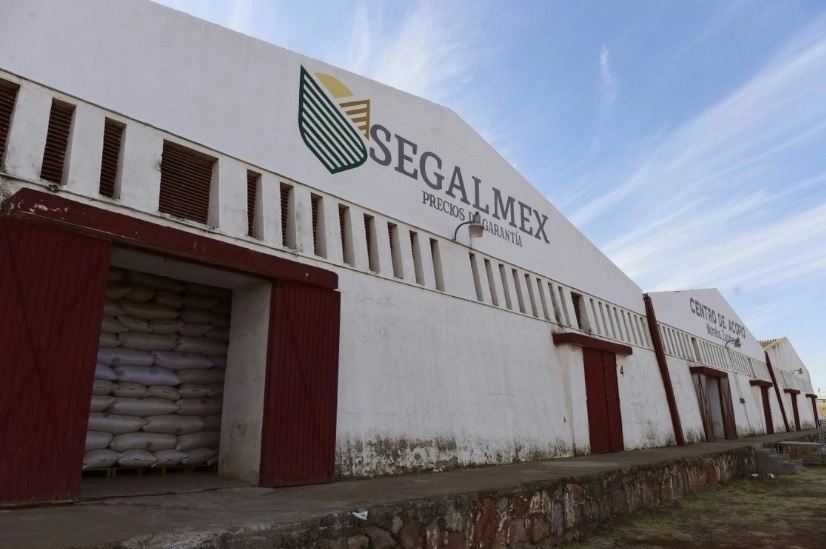BUENOS AIRES –
He played alongside Pelé, coached Diego Maradona and had to wait a long time to talk to Lionel Messi. His passion for football and his acuity in explaining it were the hallmarks of César Luis Menotti.
The charismatic coach, who led Argentina to win its first World Cup in 1978, has died, the Argentine Football Association reported on Sunday. He was 85 years old.
In a statement released on its social networks, the AFA said that it “regrets to report with great sadness the death of César Luis Menotti.” The note did not specify the causes of death.
“Goodbye, Flaco dear!” added the statement when referring to the coach’s nickname.
The AFA announcement took place while the final of the Argentine League Cup was being played between Estudiantes de La Plata and Vélez Sarsfield in Santiago del Estero. Before the start of the second half at the Madre de Ciudades stadium, a minute of silence was held in tribute, while some images of Menotti were played on the giant screen.
According to local media, Menotti was admitted to a clinic in March due to severe anemia. According to such reports, Menotti underwent surgery for phlebitis in April and subsequently returned home to continue rehabilitation.
Messi, the captain of the team that won the third star for Argentina in the 2022 World Cup, expressed his condolences in an Instagram story: “One of the great references of our football left us. Condolences to his family and loved ones.”
Menotti and Messi only met in mid-2019. That was shortly before a Copa América, with Menotti saying that the “Flea” was already among the five greatest footballers in history, along with Pelé, Maradona, Alfredo Di Stéfano and Johan Cruyff.
“I don’t think there is a guy who dreams of anything happier than Messi winning a title with the Argentina team,” Menotti added then.
Messi ended up doing it, covering himself in glory with the conquests of the 2021 Copa América and the 2022 World Cup.
Lionel Scaloni, the coach of the reigning world champions, also reacted on Instagram, indicating that “a Master of football has left us, thank you for those endearing talks in which you left a mark on us.”
“It is an immense pain to have to say goodbye to you. You left us a lot during your time in the Argentine national team and in football. Without a doubt, your passage to immortality will be with the best of memories of all of us who love baseball,” the president of the AFA, Claudio Tapia, published in X.
Also Argentine President Javier Milei, who this Sunday embarked on a trip to the United States, reacted to the news: “RIP. “Deep pain for the departure of the leader of a group that has given one of the greatest joys to the country.”
“Although I adhere to another school, it would be foolish to deny the contribution of César Luis Menotti. Goodbye, Flaco…” added the president.
Menotti’s crowning achievement was when he led the Argentine team that won the World Cup at home, in a memorable 3-1 final against the Netherlands, with a double from Mario Kempes and a goal from Daniel Bertoni, at the Monumental stadium in Buenos Aires.
Considered one of the most emblematic and influential coaches in Argentine football, he was identified as the person primarily responsible for laying the foundations for the successes achieved by the Argentine team over the last few decades.
Born on November 5, 1938 in Rosario, Menotti also had a career as a striker for several clubs in his native country. Apart from the Argentine and Mexican national teams, he coached the Spanish clubs Barcelona and Atlético de Madrid.
He was a political activist as an affiliate of the Argentine Communist Party, a lover of boxing and an admirer of the words and work of Mario Benedetti, Gabriel García Márquez, Jorge Luis Borges, Mario Sábato and Joan Manuel Serrat, among others.
Through talks with intellectuals, Menotti says he learned what life is.
“I invited Benedetti to eat at my house, when I was (as a coach) in Peñarol (1990-91). For me it was ten years of learning. But I didn’t ask: I listened,” Menotti recalled in an interview. “And I stayed one day at Sábato’s house, and I didn’t argue either: I learned.”
And once they did a report on me with Borges, and when I asked him if it bothered him that I smoked, he told me: ‘what intoxicates me is not the cigarette, but the stupid conversations.’ So I ask about everything… but not about football, because about football… I know!”
There is no doubt that Menotti knew a lot about football, in a career that began as a player in the club he loved, Rosario Central (1960-63 and 1967); Racing Club (1964); Boca Juniors (1965-66), all of them from Argentina; The Generals, United States (1967) and in the Brazilian Santos (1968) and Juventus (1969-70).
In Santos, he had Pelé as a teammate.
Menotti was appointed coach of the “Albiceleste” in 1974. With a colorful vision of the game, he was identified as the person primarily responsible for laying the foundations for the successes obtained by the Argentine team over the last few decades.
It all started in 1978, the first of the three World Cups won by Argentina so far.
Menotti was convinced that the 1978 team did not have the recognition it deserved because that World Cup was won under a military dictatorship that would have taken advantage of that party to show that Argentina was a thriving country, and at the same time took advantage of the popular effervescence to minimize complaints. on human rights violations.
Humanitarian organizations say that under that regime (1976-83) some 30,000 people died or disappeared due to state terrorism. Even today, on a sporting level, a match against Peru is questioned in which Argentina needed to win 4-0 to advance in that World Cup, but finally beat 6-0 amid unconfirmed versions that the military regime would have influenced that result with a bribe to Peruvian players.
“The way the ’78 National Team played was really subversive,” Menotti highlighted. “While others left the country, I preferred to fight against the dictatorship from within, and the exiles have always accused me unfairly of that. Even today they continue to accuse me, as I have been able to corroborate when crossing paths with the Montonera colony (a former left-wing guerrilla organization) of Argentines in Spain.
His detractors often remember a photo in which Menotti, after winning the World Cup, shakes hands with former general Jorge Rafael Videla, the head of a military triumvirate that governed the country.
On the eve of that World Cup, “Flaco” left none other than Maradona out of the squad, who at the age of 17 was already shining in Argentinos Juniors, although for the World Cup in Spain in 1982 he called him up and gave him the starting job.
“I did not regret that decision because we were champions,” Menotti stressed when remembering that episode with Maradona, who in Mexico 1986 was the great figure of that World Cup that Argentina won for the second time, in this case under the leadership of Carlos Bilardo.
But Menotti used to say that Maradona always reproached him for leaving him out of the World Cup in Argentina.
“Diego doesn’t forgive you anymore. “He doesn’t forgive you for that or for taking him out in a match,” Menotti told El Grafico magazine in December 2014. “Once I took him out, I think it was against Panama, because they were kicking him to death, and he didn’t speak to me for 15 days.” .
If with Maradona the relationship had its ups and downs but both respected and praised each other, with Bilardo the enmity was eternal. Menotti died after more than 40 years without speaking to Bilardo.
Menotti used to say that that fight was for personal and not sporting reasons, in which both were at opposite ends.
While Menotti was prone to open, technical and aesthetic football, Bilardo had a predilection for extreme tactics and obtaining results even with actions at odds with fair play.
“It was a personal dispute; I would never fight with a guy because he plays libero or stopper,” Menotti declared. “It was magnified because each one won a World Cup, but it was a debate that wasn’t worth a nickel.”
In addition to managing the Argentina team, Menotti was also coach of Mexico in 1991-92 and among other teams he led Spanish team Barcelona (1983-84), where he also had Maradona under his command; Atlético de Madrid (1987-88); Peñarol of Uruguay (1990-91); Sampdoria of Italy (1997) and Tecos of Mexico (2007), when it was the last time he was in action as a helmsman.
His debut as a coach was at Newell’s Old Boys in 1970-71, and also in Argentina he coached Rosario Central, Huracán (where he was champion in 1973); River Plate, Boca and Independiente. He also led Argentina when it became U20 World Champion in Japan, in a team in which its attackers Maradona and Ramón Díaz stood out.
Among his colleagues, Menotti admired the Spanish Pep Guardiola, whom he proposed in interviews as Argentina coach after the departure of Alejandro Sabella after the World Cup in Brazil in which the “Albiceleste” was runner-up.
“Guardiola (in his brilliant time in Barcelona) was a devastating hurricane, it destroyed all the traps and lies, it destroyed it, it annihilated it in such a way that now even the Italians want to have the ball and play,” Menotti stressed. so.
In addition to the cigarette, another peculiarity was that he wore his hair long, so groomed that it looked like it had just come out of a hair salon.
This was his revelation that he made on the subject: “I never went to the hairdresser, I cut my hair myself. I grab the scissors, cut off the ends. I started to leave it long in Huracán (at the dawn of the 70s). One day I told myself: ‘I won’t cut my hair until we lose.’ And we were undefeated for like 10 games, so it all started with a joke.”
Menotti was not afraid of death. “What bothers me sometimes is playing basketball with my grandchildren and having my physical body not respond to me,” he highlighted in 2014. “Also, it’s the only thing I’m sure of: I don’t know anyone who hasn’t died at some point.” moment”.
___
Journalist Vicente Leonardo Panetta, former sports editor for The Associated Press in Argentina, contributed to this obituary.


